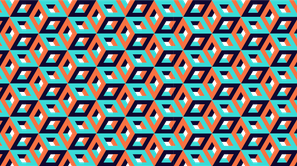Мой профиль

язык курса
длительность курса
понадобится для освоения
для зачета в своем вузе
за обучение
Dear learners, please note that only part of the materials is available for free. All course materials will be available after certification payment.
The course discusses different theoretical approaches to studying vision, introduces the most important concepts and experimental results.
Vision is one of the main ways for us to gather information about the world around us and about ourselves. Thus, studying vision naturally leads to new hypotheses on how cognition works. This way, our course on visual perception will also provide you with knowledge on cerebral mechanisms of vision, sensory systems and, in general, on how the mind and consciousness work.
This course is aimed at everyone who is interested in perceptual psychology, in particular, psychology of visual perception. The course discusses different theoretical approaches to studying vision, introduces the most important concepts and experimental results. The material is selected in such a way that the course is interesting and accessible for both students who study psychology and general audience without special knowledge in this area.
The course includes lectures, presentations and graded tests. Each student will be required to perform a small research project to be submitted by the end of the course.
Distance-learning
Initial training and familiarity with the terms of physiology and psychology is required.
The course may be of interest to students, masters of the faculties of psychology, physiology, biology, medical specialties, art historians, creators of visual interfaces
Module 1. Introduction
Module 2. Physiology of Visual Perception
Module 3. Lightness and contrast
Module 4. Colour Perception
Module 5. Motion Perception
Module 6. Perceptual Illusions
Module 7. 3D vision
Module 8. Perception and Art
Upon completion of this course, students will:
Know: the basics of the psychology of visual perception and its various aspects (perception of color, brightness, movement, space, etc.), the physiological processes that accompany the formation of visual images at different levels from the retina to different areas of the cerebral cortex, the phenomenology of visual perception and various attempts at a theoretical explanation of the phenomena of visual perception and their experimental verification.
Be able to: compare different theoretical approaches and make a choice in favor of one of the presented ones, determine the magnitude of illusions, visual perception errors and use the methods of psychophysical measurements, make a balanced choice in favor of one of the presented approaches, comparing the advantages and disadvantages of various theoretical models.
Own: methods of psychophysical measurements and means of their analysis and interpretation
The discipline is aimed at the formation of universal competencies of students in the educational programs of the bachelor's / specialist's degree, as well as other competencies provided for by the educational program.
Know: the basics of the psychology of visual perception and its various aspects (perception of color, brightness, movement, space, etc.), the physiological processes that accompany the formation of visual images at different levels from the retina to different areas of the cerebral cortex, the phenomenology of visual perception and various attempts at a theoretical explanation of the phenomena of visual perception and their experimental verification.
Be able to: compare different theoretical approaches and make a choice in favor of one of the presented ones, determine the magnitude of illusions, visual perception errors and use the methods of psychophysical measurements, make a balanced choice in favor of one of the presented approaches, comparing the advantages and disadvantages of various theoretical models.
Own: methods of psychophysical measurements and means of their analysis and interpretation
язык курса
длительность курса
понадобится для освоения
для зачета в своем вузе
за обучение

Кандидат психологических наук
Должность: доцент кафедры общей психологии

Доктор биологических наук, Профессор кафедры проблем конвергенции естественных и гуманитарных наук
Должность: Профессор

Аспирант кафедры общей психологии факультета психологии СПбГУ
Должность: Инженер-исследователь, Факультет психологии

Магистрант кафедры проблем конвергенции естественных и гуманитарных наук факультета свободных искусств и наук СПбГУ
Должность: магистрант

PhD, почетный профессор департамента экспериментальной психологии Оксфордского университета
Должность: профессор кафедры общей психологии
По данному курсу возможно получение сертификата.
Стоимость прохождения процедур оценки результатов обучения с идентификацией личности - 3600 Р.